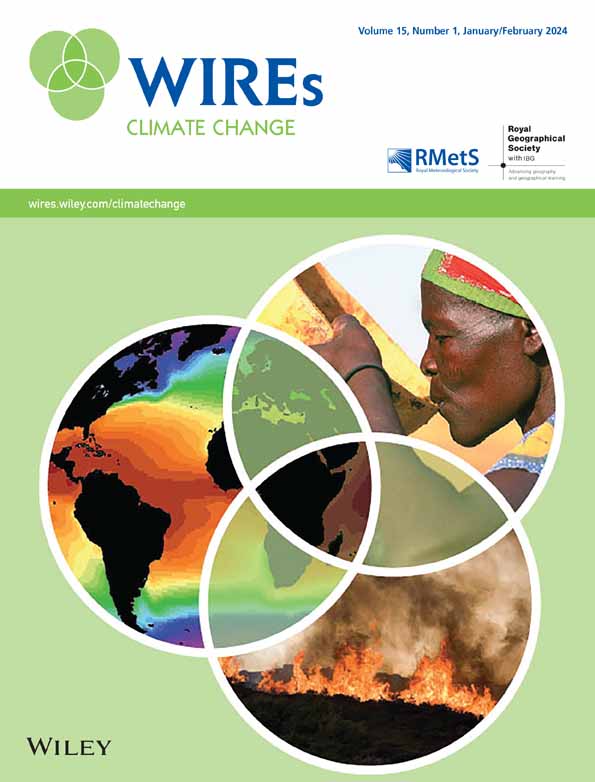Weather, climate, and agriculture: Historical contributions and perspectives from agricultural meteorology
IF 10.3
1区 环境科学与生态学
Q1 ENVIRONMENTAL STUDIES
引用次数: 7
Abstract
All over the world, farming communities need to adapt to a changing climate. At the same time, they are confronted by the necessity to increase food availability for a growing population, but also to ensure a sustainable use of natural resources. In this process, agriculture is not just the fiend responsible for an increase in greenhouse gas emissions, nor the victim of rising temperatures and extreme weather events. Agriculture is also an ally in climate change mitigation and adaptation because the selection of ad hoc crop varieties and livestock can lower the environmental impact of farming and the implementation of better management practices can promote soil conservation. Whether agriculture will have a positive or a negative impact on climate change adaptation and mitigation will depend on the rural policies implemented, but it will also be contingent on an adequate understanding of the interconnections existing between weather, climate, and farming. This review explores such interconnections by focusing on the history of agricultural meteorology, which is the research field that studies the impact of weather and climate on crops, livestock, farming operations, and plant and animal pests and diseases. The article discusses stakeholders, institutions, and main developments in agricultural meteorology, and describes how the agenda of agricultural meteorology has shifted over time. At the beginning of the 20th century, research in agricultural meteorology focused on increasing the profitability of farming. In the 21st century, instead, the main goal of agricultural meteorology is to ensure food security and guarantee sustainability.天气、气候和农业:农业气象学的历史贡献和展望
在世界各地,农业社区都需要适应不断变化的气候。与此同时,他们面临着增加粮食供应以满足不断增长的人口的必要性,同时也面临着确保可持续利用自然资源的必要性。在这个过程中,农业不仅是温室气体排放增加的罪魁祸首,也不是气温上升和极端天气事件的受害者。农业也是减缓和适应气候变化的伙伴,因为选择特殊作物品种和牲畜可以降低农业对环境的影响,实施更好的管理做法可以促进土壤保持。农业对适应和减缓气候变化的影响是积极的还是消极的,将取决于实施的农村政策,但这也将取决于对天气、气候和农业之间存在的相互联系的充分理解。这篇综述通过关注农业气象学的历史来探讨这种相互联系,农业气象学是研究天气和气候对作物、牲畜、农业经营以及动植物病虫害的影响的研究领域。本文讨论了农业气象学的利益相关者、机构和主要发展,并描述了农业气象学的议程如何随着时间的推移而变化。20世纪初,农业气象学的研究重点是提高农业的盈利能力。相反,在21世纪,农业气象学的主要目标是确保粮食安全和保障可持续性。
本文章由计算机程序翻译,如有差异,请以英文原文为准。
求助全文
约1分钟内获得全文
求助全文
来源期刊

Wiley Interdisciplinary Reviews: Climate Change
METEOROLOGY & ATMOSPHERIC SCIENCES-
CiteScore
20.00
自引率
2.20%
发文量
58
审稿时长
>12 weeks
期刊介绍:
WIREs Climate Change serves as a distinctive platform for delving into current and emerging knowledge across various disciplines contributing to the understanding of climate change. This includes environmental history, humanities, physical and life sciences, social sciences, engineering, and economics. Developed in association with the Royal Meteorological Society and the Royal Geographical Society (with IBG) in the UK, this publication acts as an encyclopedic reference for climate change scholarship and research, offering a forum to explore diverse perspectives on how climate change is comprehended, analyzed, and contested globally.
 求助内容:
求助内容: 应助结果提醒方式:
应助结果提醒方式:


